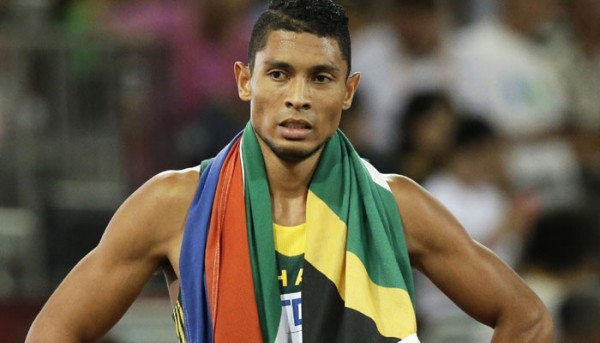 You can Google bent over women, and see some images that give you shivers. Women living now, in very poor countries, whose heads cannot rise above their knees. There is no work for them, and no one wants them, or even wants to be seen with them. So unlucky. They are untouchable women, who beg for a living.
You can Google bent over women, and see some images that give you shivers. Women living now, in very poor countries, whose heads cannot rise above their knees. There is no work for them, and no one wants them, or even wants to be seen with them. So unlucky. They are untouchable women, who beg for a living.
It happens that, in my congregation, there is a bent-over man. He suffers from ankylosing spondelitis. And it has cost him his career in the Navy, where he was an officer, and his ability to work at all. Continual pain is an issue, as is mobility, dependency, and isolation. Fortunately, he has the means to afford his own, adapted, home, adapted car. These things help. But they do not overcome his disability, or allow him an easy life.
The Olympics are on this week, when we will read about the bent-over woman, whom Jesus healed, and the ensuing ruckus, in which the local clergy and a number of others complained about the healing, because it happened on the Sabbath, not during business hours.
The clash here is over theology, a word that means ‘knowing God.’ The God the clergy knew wants to be the center of Sabbath attention, honored for goodness and might, and left unbothered, for one day a week, by human concerns.
The God Jesus knew, theologically, wants us to care for one another, always. Even on the Sabbath. To do all the good we can, to quote a Methodist motto, which is taken from a different story, in which people quarrel about who is to blame for a man being born blind – and Jesus cuts to the chase, saying the man is not an occasion for blame, but an opportunity for good to be done.
The bent-over woman is also an opportunity for doing good, Jesus sees. And he does it. Would that we all could. But – to the others, who have known her all her life, she is human trash. To be bent over is to be sub-human. To be human is to stand erect, to be upright. It defines us.
Illness is not always seen as sin in our time, but it is seen as pitiable. The Olympics are, among other things, a celebration of bodily human perfection. Those gold medals are our way of saying, this is the standard of ideal humanity.
The Olympics send mixed messages, some tolerant, some intolerant, and all the messages extol the virtues of the honed body.
And yet, for all the celebration of nations, for all the imperial notions implicit in large delegations from rich and populous nations, there are at every Olympics extraordinary achievements by athletes from small, poor, bent-over nations and by poor athletes from richer nations, athletes bent under the burden of racial prejudice, whose achievements defy the deep prejudices of right living many nations hold.
Jesse Owens is never to be forgotten. Majorly disadvantaged in his own nation, the US, Owens ran and won gold under Hitler’s nose in 1936. Then came home to no opportunities, remaining in under the shroud of race prejudice all his life.
In 2016, Wayde Van Niekerk, a South African black, won gold in the 400 meter race, breaking a 17 year old record, and a far older record of racial limits in South Africa, which had prevented his talented runner mother from entering the Olympics. Van Niekerk was trained by a 72 year old white woman, Ans Botha, so prejudice has not absented itself in South Africa, for this amazingly talented young man was not swept into the mainstream of their athletic world.
Similarly, Usain Bolt of Jamaica, who learned to run in the road outside his house, and who is unbeatable, despite the best efforts of rich, large nations, is a hopeful and biblical phenomenon (oh, when the bent over stand up!, when the poor and unwanted walk upright!, when the lowly rise!, that is a holy time!)
And Mo Farah, born in Somalia, now running for and living in Great Britain, has had, over and over in his life, the courage to rise when he has fallen and keep on running, and win!
And then there is Simone Manuel who won a gold medal for swimming the 100 meter freestyle event faster than anyone else in a highly competitive field. African American and a student at Stanford, Manuel held up her medal and spoke of current issues of police brutality in America.
Jesus challenges us all to revise and to keep on revising our image of God, so that our codes of right-living, which after all are Sabbath codes honoring what is great and powerful, can become mirrors reflecting the just mercy of God, rather than the merciless injustice of this world.
______________________________________________________
Image: Wayde Van Niekerk of South Africa. Alchetron, the Free Social Encyclopedia image.










